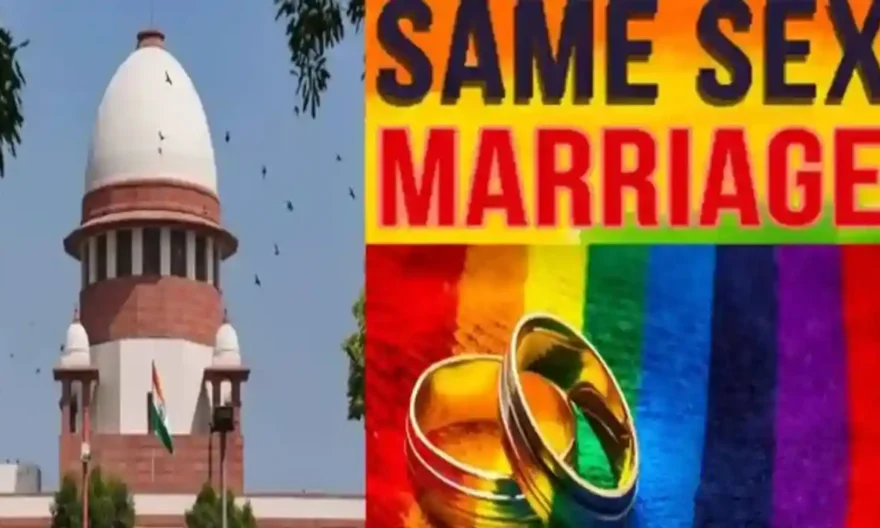
On the valuable suggestion of Solicitor General Tushar Mehta, the CJI D.Y. Chandrachud stated on Thursday that SG will discuss with competent authority and will come before this court on May 3, 2023.
Before this, the SG Mehta has stated, “The Centre could assist in the removal of these problems or difficulties but could not grant any legal recognition or status (of marriage).”
The Apex Court also stated that while granting legal recognition to same-sex marriages is within the purview of the legislature, the Court’s goal in hearing the same-sex marriage case is to ensure that means are devised to grant same-sex couples social and other benefits, as well as legal rights, without the label of marriage.
Today marks the sixth day of hearings before the Constitution Bench, which includes Chief Justice DY Chandrachud, Justices Sanjay Kishan Kaul, S Ravindra Bhat, Hima Kohli, and PS Narasimha.
The SG said that arguments about the right to choice and sexual orientation raised by petitioners seeking legal recognition for marriages between non-binary, non-heterosexual, or transgender people could be used to defend incestuous relationships tomorrow.
“Imagine a situation, when a person is attracted to those persons who are mentioned in prohibited relationships. Incest not uncommon in the world and world over it is prohibited. If a man is attracted to his sister, can they claim that we are consenting adults, that we are engaging in private activities, and that we have the right to autonomy and choice? Can someone challenge this definition (of forbidden degrees) based on that argument? Why is this restriction in place? Who are you to decide with whom?” SG submitted.
“That will be far-fetched,” CJI DY Chandrachud promptly remarked.
“We used to treat even this far-fetched,” the SG replied.
“Sexual orientation or your autonomy as an individual can never be exercised in all aspects of marriage, including the entry into marriage, the prohibited relationships, the grounds on which marriage can be dissolved, all of these are subject to regulation by law. So, these are very far-fetched for someone to argue in front of us that orientation is so absolute that I can thus commit an act of incest. No court will ever countenance this.”
SG contended that people can also challenge polygamy on such grounds. “People may say my choice is polygamy, arguments in the same way they are ready for marriage can be made, whether accepted or not is one thing, for challenging incest and prohibited degrees,” he contended.
At this point, Justice Bhat highlighted, “But these are universal rules. They were allowed as long as they were not codified. That was the law, the standard. One may understand if you’re working up to this and claiming there’s a governmental interest in this relationship. There are certain interests of the state which are legitimate.”
SG Mehta then argued that the state has the authority to regulate particular partnerships if it believes it has a legitimate interest in doing so.
“Marriage was thus not a regulated relationship. However, the state has determined in its legislative policy wisdom that we will regulate, and we can only regulate when we recognise. All of these arguments were presented while your lordships were hearing Navtej,” he argued.
The Centre stated, “We leave it to the wisdom of the court in terms of decriminalisation of Section 377 IPC, but this has nothing to do with future rights of marriage, inheritance, and so on.”
SG then moved on to argue that if such marriages were permitted, as many as 160 provisions would be altered, resulting in ‘irreconcilable’ disparities in the country’s statutory structure.
“See the definitions of full blood and half-blood (in regard to “degrees of banned relationship” in the Special Marriage Act), we can never reconcile this provision – it states that one man gave birth to a kid with a biological woman. Marriage between lesbians cannot be read because it is not whole blood. Simply transforming a man and a woman into a person will render several provisions irreconcilable, and this full blood will have an unavoidable effect on succession,” SG Mehta argued.




